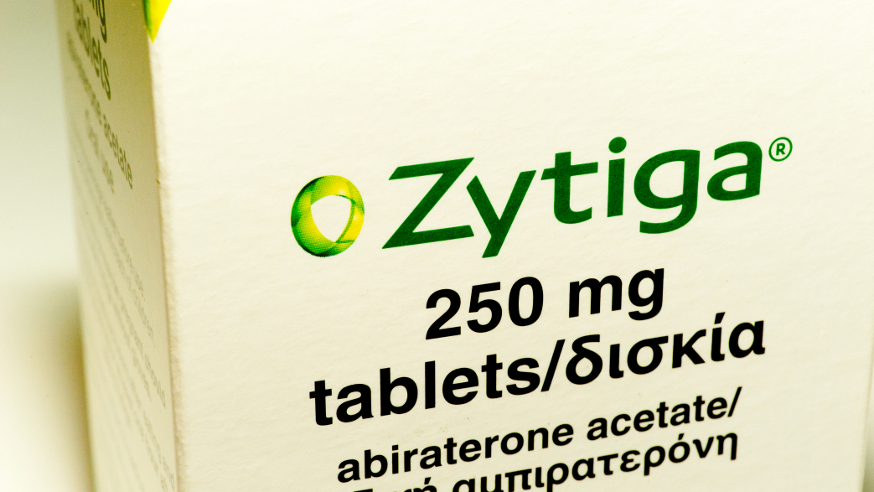
The prostate cancer drug abiraterone has had a tortuous path through the NICE assessment process.
It was first approved for use on the NHS in 2012, but its use in men who haven’t received chemotherapy was blocked in August, only for NICE to this month announce it was suspending its appraisal.
If you follow the work of The Institute of Cancer Research then you’ll know that abiraterone is a real success story for the organisation, and that we have been following what happens in this appraisal closely. Earlier this year, I blogged about NICE’s preliminary decision to block use of abiraterone earlier in the course of treatment. There have been a few changes since then so I thought I’d look at what’s new for abiraterone.
Abiraterone was discovered at the ICR and we developed it further with our clinical partner The Royal Marsden. It is now marketed at Zytiga by manufacturer Janssen.
The drug works by blocking the production of testosterone, which prostate tumours rely on to grow. It is now used as standard treatment for prostate cancer after chemotherapy, extending the lives of thousands of men in the UK with advanced prostate cancer.
This year, NICE has been looking at the use of abiraterone in prostate cancers before they are treated with chemotherapy. This would give men access to the drug earlier in the course of treatment, without needing to be treated with chemotherapy first. However in May, NICE announced its preliminary decision that the estimated costs of the drug were substantially above the range for which a drug is normally considered cost-effective, and that abiraterone wouldn’t be made available to these patients on the NHS. You can read more about this in my previous blog post here.
The ICR was obviously disappointed when this decision was confirmed in NICE’s Final Appraisal Determination, and our Chief Executive, Professor Paul Workman, released a statement expressing disappointment in the decision. Abiraterone maintains patients in a better state of health than chemotherapy, so there are real benefits for quality of life in giving men the additional months that come with abiraterone earlier in the course of treatment.
Professor Workman urged NICE and Janssen to continue discussions and to explore every option for making abiraterone available to these men at a price that is affordable for the NHS. Earlier this month we were delighted to see that NICE announced that the appraisal was going to be suspended for further discussions and that Janssen has submitted an amended Patient Access Scheme – which is an agreement between a drug’s manufacturer and the Department of Health to make a drug affordable for the NHS.
NICE’s says that the company will be discussing the amended Patient Access Scheme with the Department of Health, and may be able to submit further evidence to its appraisal committee. NICE could then consider whether the new price plan made abiraterone cost-effective enough to approve.
In other abiraterone news, this week at a large clinical cancer conference of the European Society for Medical Oncology (ESMO), the study leader presented further clinical analysis of abiraterone before chemotherapy. The latest analysis shows that abiraterone significantly prolongs overall survival of men with prostate cancer by an average of 4.4 months. With the NICE appraisal potentially reopening soon, further evidence of the clinical effectiveness of abiraterone is welcome.
I’ll be following the outcomes of these discussions, and of course at the ICR we’re really hopeful that Janssen and the Department of Health will be able to come to an agreement which will allow NICE to consider abiraterone cost effective. I’ll let you know when we have more to report.
comments powered by